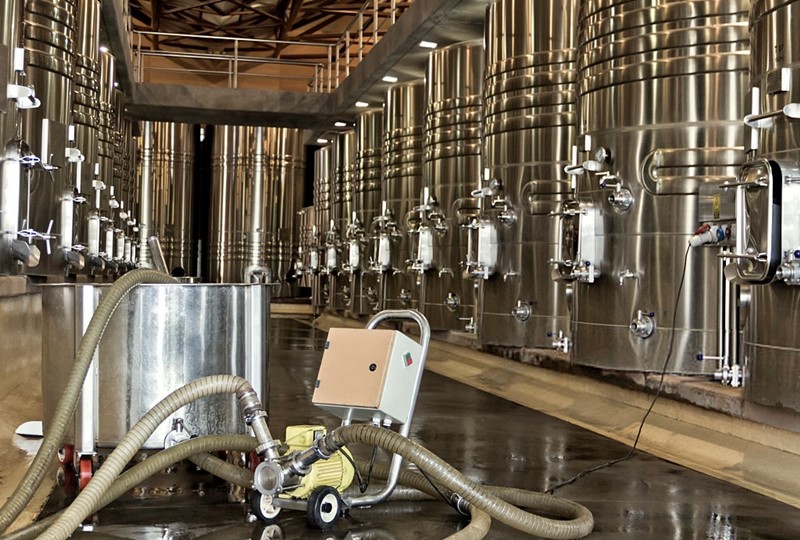France's First Industrial Wine Dealcoholization Center Opens
French Wine Industry Takes a Leap into Non-Alcoholic Future
2024-09-28

In France, the wine sector is entering a new stage with the opening of a wine dealcoholization center. The facility, called Le Chai sobre, is located in Vic-Fezensac, in the Gers department, and is the first industrial plant of its kind in the country. The project is the result of a partnership between Moderato, a company specialized in non-alcoholic wines, and Vivadour, a regional agricultural cooperative group. The opening of this center allows domestic producers to avoid sending their wines to countries like Belgium, Spain, or Germany for dealcoholization, which was previously a common practice that led to higher logistical and environmental costs.
Le Chai sobre will implement a technique called vacuum distillation or cold distillation, which reduces the alcohol content in wines while preserving their organoleptic qualities. According to Fabien Marchand-Cassagne, co-founder and managing director of Moderato, the impact of this facility will be both ecological and economic, as it reduces the carbon footprint associated with transport and additional processing costs. The center will also feature a laboratory for small-scale testing to ensure the quality of dealcoholized wines.
In its initial phase, the plant will have the capacity to dealcoholize around 50,000 hectoliters per year, allowing Moderato to produce its own range of non-alcoholic wine labels as well as provide services to other producers interested in this segment. The opening of Le Chai sobre coincides with a complex moment for the French wine sector, which has experienced a drop in sales and serious profitability issues. According to Marchand-Cassagne, the production of non-alcoholic wines could be a way to add more value to grapes and diversify the product range.
Regarding demand, initial signs are favorable. Moderato has already started working with around 70 bulk wine producers through its partner Vivadour and is in talks with importers to explore new commercial opportunities. The initiative has generated interest from distributors looking to develop their own non-alcoholic wine brands, as evidenced during its presentation at the Wine Paris international fair, where numerous producers showed interest in this new development.
The growth of non-alcoholic wines has been steady in recent years, although their presence in the market remains limited. For Fabien Marchand-Cassagne, one of the biggest challenges is to increase the available supply and change the perception of consumers, who often remain unaware of the existence of these products. According to a recent study, 38% of respondents were not aware of the availability of non-alcoholic wines in the market, which highlights the need to educate consumers and improve the category's visibility.
Price remains a key factor. The dealcoholization process involves additional steps and the use of high-quality wines, which increases the final cost. Moderato's labels range between 15 and 17 euros in specialty stores, while in larger retail outlets prices range between 8 and 9 euros. For the company's director, it is essential to maintain a price that reflects the quality of the product. This contrasts with the current offering of non-alcoholic wines in supermarkets, where most options are priced between 3 and 5 euros, a range that, in Marchand-Cassagne's view, cannot guarantee a product of adequate quality.
Xavier-Luc Linglin, director of the François Lurton estates, whose brand Les Fumées blanches has also entered the non-alcoholic category, shares this concern and emphasizes the importance of educating consumers about the dealcoholization process. The production of these wines starts with the making of a conventional high-quality wine, which is then subjected to alcohol removal and, in some cases, reintroduction of aromas. These additional steps explain the higher cost compared to traditional wines.
Another challenge in developing these wines is maintaining the sensory properties after the dealcoholization process. For red wines in particular, the technique tends to create a slightly cooked taste when the goal is to achieve a round and balanced profile. According to Marchand-Cassagne, this is one of the research and development focuses at Le Chai sobre, with the aim of optimizing the process and offering wines that retain their original characteristics.
On the other hand, marketing and communication play an important role in the acceptance of non-alcoholic wines. Mathilde Boulachin, director of Pierre Chavin, a pioneer in this segment, emphasizes the need to find a more positive term to describe this category rather than highlighting the absence of alcohol. Changing the narrative could help redefine consumer perception and position these products as a viable option within the broader wine market.
The opening of Le Chai sobre in France marks a significant step in the adaptation of the wine industry to new consumption trends, where the demand for non-alcoholic options continues to rise. The ability to offer a quality product at a fair price, along with an effective communication strategy, will be fundamental to the success of this initiative and its acceptance by the public.
Founded in 2007, Vinetur® is a registered trademark of VGSC S.L. with a long history in the wine industry.
VGSC, S.L. with VAT number B70255591 is a spanish company legally registered in the Commercial Register of the city of Santiago de Compostela, with registration number: Bulletin 181, Reference 356049 in Volume 13, Page 107, Section 6, Sheet 45028, Entry 2.
Email: [email protected]
Headquarters and offices located in Vilagarcia de Arousa, Spain.